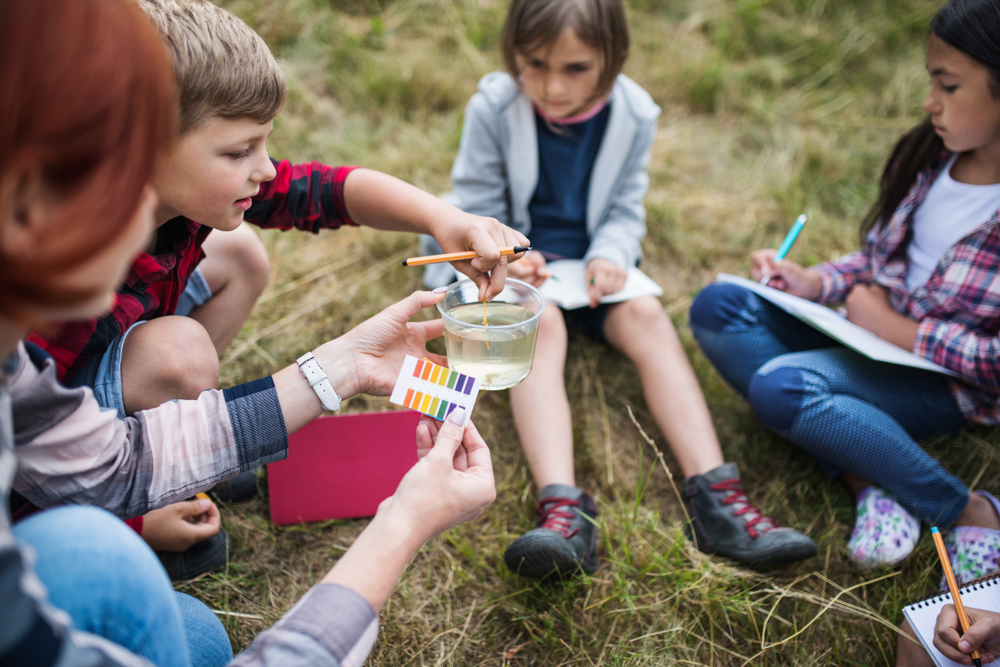British Science Week activities
Each year, the British Science Association runs a ten-day celebration of science, technology, engineering and maths called British Science Week. People from all over the UK take part in events and activities to develop their skills in these areas. This year, British Science Week is held from the 10th to the 19th of March; and the theme is ‘Connections’.
Almost all innovations in science, technology, engineering, and mathematics are based on human connections; after all, two (or more) heads are better than one! However, in addition to exploring the significance and joy of connections between individual scientists, research groups, and institutions, you could learn about the various ways connections appear across all areas of science. Evolution, for example, demonstrates how animals, including humans, plants, and bacteria, are all linked in a family tree that dates back centuries.
You could look into the science and technology behind the internet or how technology has changed the world by connecting people all over the world with the click of a button. Here at Hope, we have set out some ways in which you can celebrate British Science Week in the classroom.
British Science Week activity packs
The free activity packs for British Science Week 2023 are available to download now! They offer an Early Years pack, Primary pack, Secondary pack and Community pack.
The theme for 2023’s packs and poster competition is ‘Connections’, and the packs provide fun and engaging ways to introduce this theme to children.
Each pack, created with the support of UK Research and Innovation and 3M, includes a wide range of fun, hands-on activities and loads of useful information for planning your events for the Week. So, if you’re unsure of what activities to do, then this is the perfect way to incorporate science in the classroom with minimal effort.
Science through stories
Stories are a great starting point for exploring so many different scientific concepts. You could use a book as a stimulus for an experiment, as inspiration for a new invention, or to share during your daily story time. An example might be ‘The Hungry Caterpillar’ by Eric Carle.
During your science week, choose some key books you will share, read and talk about.
Get children talking about science … all week!
Plan for a daily discussion (maybe a circle time) when you can explore and talk about different areas of science that interest your class. You could start the week by writing topics onto lolly sticks, putting them in a jar and each day a child can pick a new one out.
This is a great way to start your day talking about science and get conversations flowing with the class.

Get outdoors
There is no better place in the world to learn about science than the great outdoors! Plan a science trail or experiment on your school grounds during Science Week. You could assign older students to plan a trail for a younger year group.
Inspect nature with a microscope
Microscopes are an essential part of every scientist’s toolkit, allowing you to take a closer look at items from nature. They might not be as effective as proper microscopes but work with your class to make their own before you head outdoors.
Get volunteers from the community involved
Send a message around to parents and carers to find out if they work in STEM and would be keen to share their experiences as part of British Science Week. This is a great opportunity to showcase to pupils how broad STEM careers can be. Remember, not all activities have to be on the theme of ‘Connections’; the Week is about celebrating science your way!
Use STEM products in lessons
Another way to celebrate science is by using STEM products in classroom activities. Incorporate coding and programming. These are ideal for your class to explore their imagination whilst learning the basic principles involved in engineering, design, testing and programming.
Another great product to incorporate in your science lessons is our science detective’s kits. These are perfect to get your class involved and absorb the science behind everyday activities.
And don’t just stick to teaching about this on certain dates. Integrate it in your regular lessons, and really show the importance of women and girls in science.